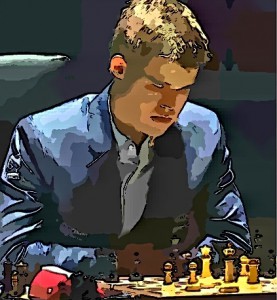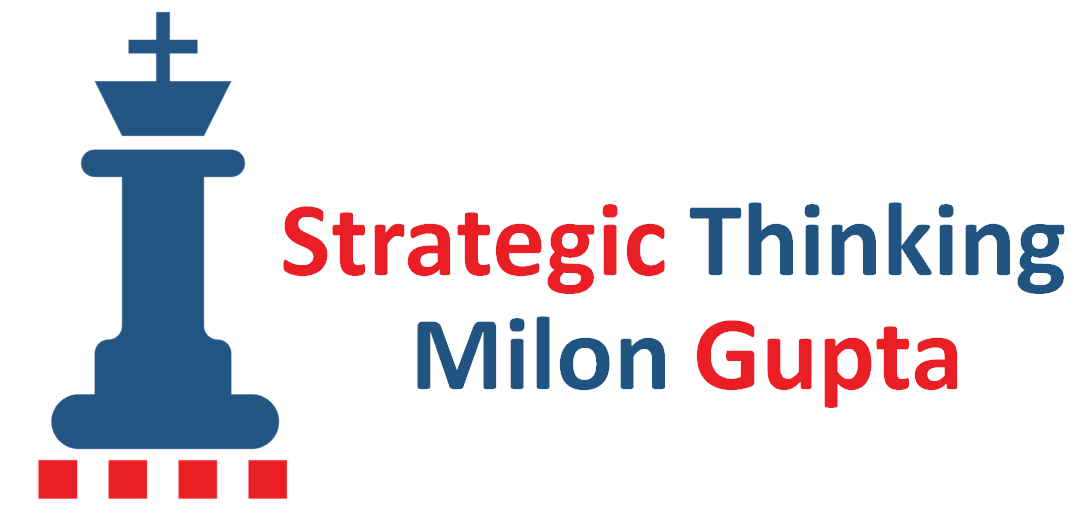Chess offers useful insights for business. On occasion of the current World Chess Championship 2014, I will highlight in a series of articles different business lessons to be learned from the game of kings. In part one, I will focus on the importance of resilience for success in chess and business.

On 8 November 2014, the World Chess Championship Match between world champion Magnus Carlsen and challenger Viswanathan (Vishy) Anand started in Sochi, Russia. After Anand’s crushing 3,5:6,5 loss in last year’s title match in Chennai, India, most experts would not have expected the former world champion from India to qualify for the title match against the Norwegian world champion. And yet, he did.

Due to the fact that 23-year-old Magnus Carlsen is ranked number one in the rating list of the world chess federation FIDE, and the 44-year-old Anand is ranked number six, experts have given Anand only slim chances to win back the title. Nevertheless, the first game of the match on 8 November showed that the challenger has bounced back from last year’s defeat and displayed impressive resilience under pressure.
In the opening, Anand with the white pieces had put Carlsen under some pressure, and Carlsen invested considerable time to find a precise way to equalising the position. In time trouble, Anand got wobbly and made some second-best moves, which gave Carlsen the opportunity to develop a dangerous initiative. After time control at move 40, Anand faced a passive position in which his opponent had serious threats. Many weaker players would have collapsed under this pressure. Not so Anand: he found some hidden resources to activat his rook and queen. Finally, Carlsen couldn’t find a way to win and allowed perpetual check and draw. Anand’s resilience in a critical situation got rewarded.
The business lesson for executives from this game and Anand’s path to qualifying for the World Championship is straightforward: if you want to be successful in the long run, you have to be resilient in the face of unavoidable adversity, both on an individual and an organisational level. Before I discuss, how executives can strengthen their resilience, let us first clarify what resilience actually is.
The American Psychological Association (APA) defines resilience as follows: “Resilience is the process of adapting well in the face of adversity, trauma, tragedy, threats or significant sources of stress — such as family and relationship problems, serious health problems or workplace and financial stressors. It means ‘bouncing back’ from difficult experiences.”
The APA article further points out that resilience is rather ordinary than extraordinary. This may be true for coping with adverse situations in life. However, according to my personal experience in chess and management, resilience is much more extraordinary, when it comes to achieving excellence under high competitive pressure.
In order to nurture psychological resilience, APA mentions a number of contributing factors. These include supportive relationships, the ability to make and pursue realistic plans, a positive self-concept, communication and problem-solving skills as well as the ability to manage strong impulses and feelings.
It seems that positive emotions play a very important role for building resilience. According to research by Michele M. Tugade and Barbara L. Fredrickson, resilient individuals use positive emotions to bounce back from negative experiences. The question then is how to sustain positive emotions.
In my view it requires a combination of awareness, discipline and trained mental processes to stay emotionally balanced under pressure. Despite the emotional rollercoaster both Anand and Carlsen went through in their first match game, they appeared emotionally balanced and confident. Both had shown in the game that they are capable of acting confidently and decisively under pressure and changing circumstances. Executives are well advised to build and sustain the some level of resilience in themselves as well as their employees, in order to stay on a successful course in the ups and downs of business.
